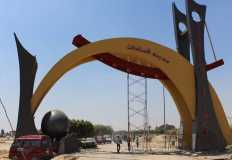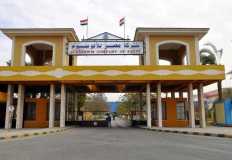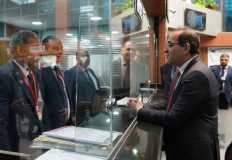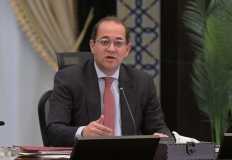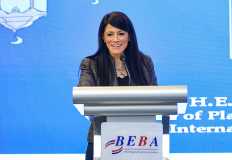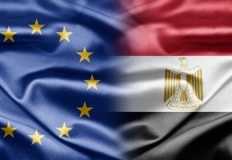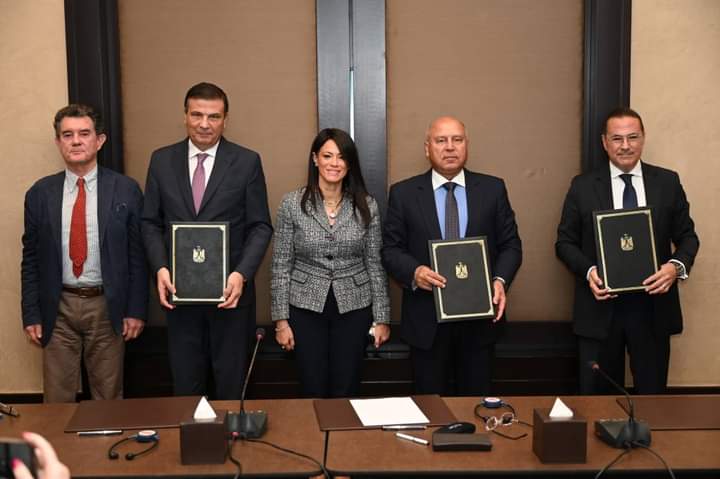
The Ministries of Industry and Trade, Agriculture and Land Reclamation, and the United Nations Industrial Development Organization (UNIDO) have signed a document outlining the second phase of the Egyptian Cotton Project. This initiative aims to enhance the sustainability of Egypt's cotton value chain through partnerships with key national institutions, sectoral associations, and private sector stakeholders.
The document was signed by Engineer Kamel el-Wazir, Deputy Prime Minister for Industrial Development and Minister of Industry and Trade, Alaa Farouk, Minister of Agriculture and Land Reclamation, and Patrick Gerard Gillbert, Regional Representative of the United Nations Industrial Development Organization (UNIDO) in Egypt. The signing ceremony was attended by Dr. Rania Al-Mashat, Minister of Planning, Economic Development and International Cooperation, Dr. Martino Mille, Director of the Italian Agency for Development Cooperation in Egypt, and representatives from industrial chambers and export councils for the spinning, weaving, and ready-made garments sectors.
Deputy Prime Minister and
Minister of Industry and Trade, Kamel el-Wazir, expressed his satisfaction with
the signing of the second phase of the Egyptian Cotton Project, implemented by
UNIDO. This project aims to bolster Egypt's cotton sector by providing
training, promoting innovation, and enhancing sustainability. By supporting
small-scale farmers, creating jobs, and improving the competitiveness of
Egyptian cotton, the project will contribute to the sector's growth and the
nation's economic development.
El-Wazir emphasized the pivotal
role of Egyptian cotton in both economic and social development. He highlighted
the textile sector's vertical integration, from raw materials to ready-made
garments. The second phase of the project builds on the success of the first
phase (2018-2021), which aligned with the government's strategy to develop the
textile sector.
Supported by the Italian Agency
for Development Cooperation and benefiting from the "Cotton for Life"
initiative, the project aims to enhance the sustainability, inclusivity, and
added value of Egypt's long and extra-long staple cotton value chain. By
improving the economic, social, and environmental performance of farmers and
processors, and strengthening supporting institutions, the project will
contribute to a more sustainable and prosperous cotton industry.
The Minister noted that the project, in collaboration with the Cotton Research Institute, had enhanced cotton production in Kafr El Sheikh and Damietta. By focusing on traditional and organic methods, the project emphasized sustainable practices that reduce water, pesticide, and fertilizer usage, leading to significant cost savings and environmental benefits. Capacity-building programs were implemented to equip farmers with the necessary skills to adopt these practices effectively.
